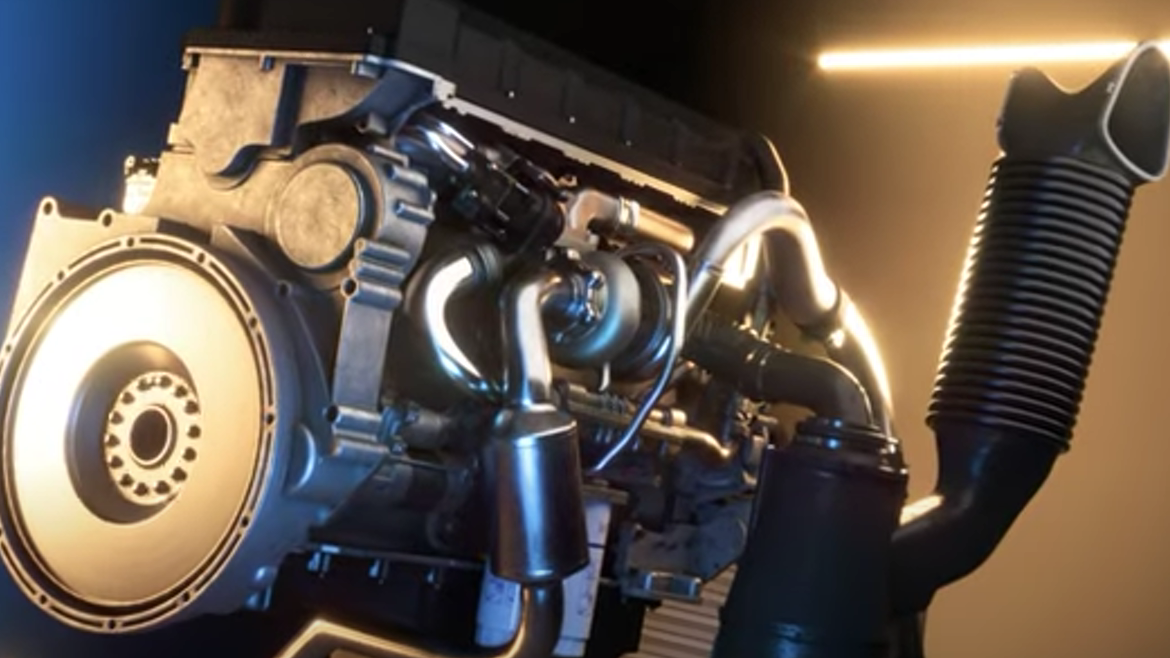Mar 3, 2022
Posted by Adam Weber, Field Test Technical Specialist , Mark Daniels, Field Test Technical Specialist
Heavy duty trucking fleets have a lot to worry about. Fuel prices are on the rise, finding drivers can be a challenge, and the global supply chain crunch continues to put pressure on the freight and shipping industry. Amidst all of this, it can be easy to overlook some operational details. But for these same reasons fleets find themselves challenged, optimizing those details has never been more important.
One of the operational details is your choice of engine oil. The right oil can help you protect your engine hardware, ensuring that your trucks run reliably and are less susceptible to costly downtime. And while providing long-term durability and protection remains an oil’s most important performance characteristic, there are additional benefits to be had with lower-viscosity formulations available today.
And right now, as annual contract renewals approach, is a good time to be considering whether you’re servicing your fleet with an optimized formulation. Interested in exploring an option that could benefit your bottom line? Here are a few questions you can ask your oil supplier to arrive at the right choice:
“What are my options?”
Today’s available engine oils adhere to the American Petroleum Institute’s (API) performance category, which is split into CK-4 and FA-4. CK-4 lubricants are more conventional and available in traditional viscosity grades, whereas FA-4 lubricants include lower-viscosity formulations that are specifically designed to improve fuel economy trucks newer than model year 2010.
If you’re reading this, it’s more likely than not you’re filling your fleet with CK-4 lubricants. These formulations have the large majority of market share; FA-4 lubricants account for about 1% of the total heavy duty diesel market today.
Based on the composition of your fleet, your oil supplier should be able to guide you toward a choice that meets your needs—and that choice might, in fact, be FA-4 formulations.
“Why would I want to use a lower viscosity lubricant? What’s in it for me?”
CK-4 15W-40 is the most common viscosity grade in the market today, and is trusted by a wide variety of fleet operators. But lower viscosities—whether it be a CK-4 10W-30 formulation or an FA-4 variant in a suitable vehicle—can deliver significant fuel economy benefits. It's been shown that Class 8 over-the-road fleets can realistically expect fuel savings in the range of 0.5%–1.5% by switching from 15W-40 to 5W/10W-30 engine oil. Further, the savings from switching to the fuel-efficient FA-4 variant can be expected to add a further 0.4%–0.7% of increased fuel efficiency. Your oil supplier may be able to offer further details about how lower-viscosities may benefit your fleet.
“How does my choice of engine oil impact my vehicle warranties?”
No fleet wants to void a warranty by improperly servicing their vehicles, and you should work closely with your oil supplier to ensure that your choice of lubricant follows OEM recommendations.
Generally, if your fleet operates engines that are newer than model year 2010, and those vehicles are made by OEMs that approve the use of FA-4 (Detroit Diesel, Cummins, and Navistar), FA-4 lubricants are a good option for those vehicles. For newer vehicles by OEMs who have not explicitly recommended FA-4, it may be worth contacting the manufacture to determine if oil recommendations have recently changed to include FA-4.
For any vehicles newer than model year 2010, it is recommended to at least consider adopting CK-4 10W-30 or 5W-30 lubricants to take advantage of the fuel efficiency advantages. It is worth noting that most OEMS, even those who do not recommend FA-4, fill their vehicles in the factory with lower viscosity CK-4 formulations. So, if you’re still using 15W-40 formulations, it’s more likely that choice is in conflict with the recommendations of your OEM. Some further conversation is merited with your oil supplier.
“Can I switch my choice of lubricant while my contract is still in effect?”
If you’re interested in making the switch to a lower-viscosity, higher-value lubricant choice, it is likely that your oil supplier will work with you to make the switch happen. Doing so when your contract is up for renewal simply makes doing so easier, and marks a good occasion to think more deeply about your engine oil choice.
“What kind of cost savings can I realistically expect?
To get a realistic sense of the cost benefits a lower-viscosity lubricant choice can have, it’s a good idea to ask your oil supplier about testing lower-viscosity oils in your fleet formulations to get a better gauge on real-world fuel economy savings based on your specific drivers, loads, and routes. Not only will field trials grant you better visibility of the benefits, but can offer you some peace of mind regarding the high levels of protection that lower-viscosity formulation can deliver for just about any heavy duty truck.
As fleets continue to contend with rising fuel prices and other challenges, it’s worth investigating every possible avenue to maximize efficiencies and cost-savings while sharpening your competitive edge. Your choice of engine oil represents a good opportunity to make a positive change. It’s worth starting the conversation with your oil supplier when it’s time to renew your contract.
(Content pulled from article originally published in Fleet Management Weekly.)









